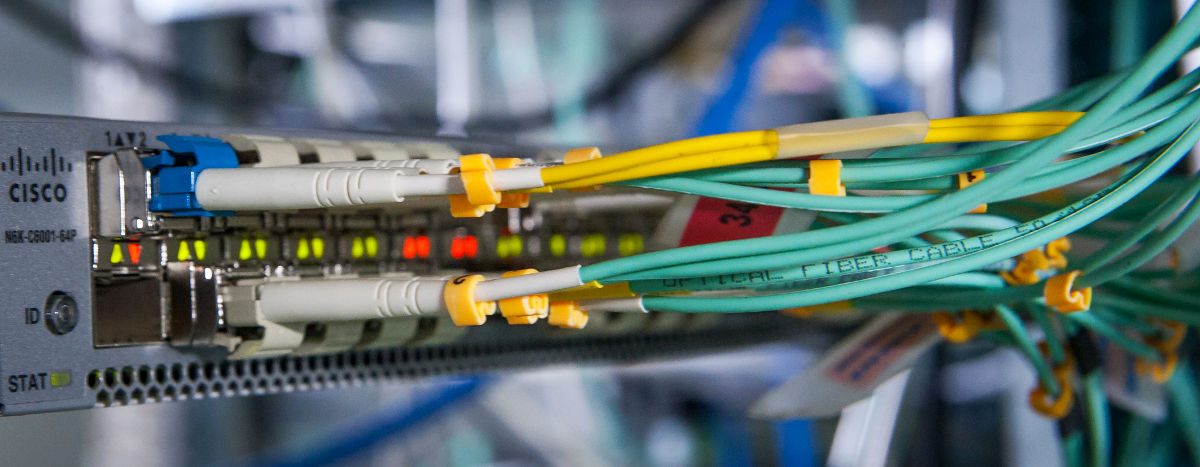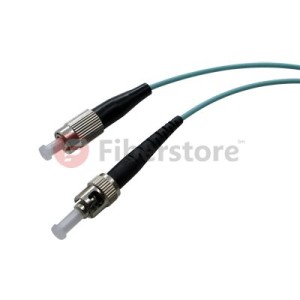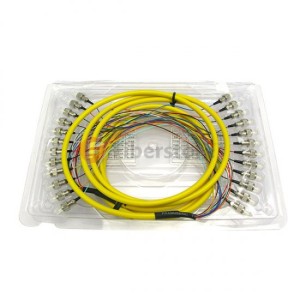How do fiber optic work?
Optical fiber communications composed of thin glass by the plastic protective overcoat layer. Glass essentially consists of two parts: the core diameter of 9 to 62.5μm, a low refractive index outer cladding diameter of 125μm glass material. Although according to the different materials
used, there are some other types of fiber, but is mentioned here that the most common types. Light in the core portion of the fiber to the “total internal reflection” mode transmission, but also refers to the light entering end of the fiber, the interface between the core and the cladding reflected back and forth, and then transmitted to the other end of the fiber. Core diameter of 62.5μm, outer cladding diameter of 125μm fiber called 62.5/125μm fiber.
What is the difference between multimode and single-mode fiber?
Multimode Fiber Optic Patch Cables
Almost all of the Multimode Fiber Optic Patch Cables dimensions are 50/125μm or 62.5/125μm, and the bandwidth (the amount of information transmission fiber) is usually 200MHz to 2GHz. Multimode optical transceiver via multimode fiber can be up to 5 km of transmission. In the light emitting diode or a laser light source.
Single Mode Fiber Cable
The size of Single Mode Fiber Cable 9-10/125μm, and compared with a multimode optical fiber, it has unlimited bandwidth and low loss characteristics. The single mode optical transceiver used for long-distance transmission, and sometimes up to 150-200 km. Using a narrow spectral line LD or LED as a light source.
Single mode fiber is cheap, but compared to multi mode fiber device, it is more expensive. Single-mode devices typically can run on single mode fiber, but also be run on a multi mode fiber, and multimode device only runs on multimode fiber.
How is the loss with using of the Fiber Optic Patch Cables?
It depends on the the wavelength of the transmitted light and the kind of optical fiber
When 850nm wavelengths for multimode fiber: 3.0 dB / km
When 1310nm wavelength for multimode fiber: 1.0 dB / km
When 1310nm wavelength for single mode fiber: 0.4 dB / km
When 1550nm wavelength for single mode fiber: 0.1 dB / km
Fiber Optic Pigtails
Fiber Optic Pigtails ony has one end connector, and the other end is an optical fiber core breakage, by fusion connected with other core cable, often appear in the fiber optic terminal box for connecting cable and fiber optic transceivers.
Fiber optic pigtails devide into multimode and singlemode fiber pigtails. Multimode fiber pigtail is orange and wavelength of 850nm, the transmission distance of 500m, for short-range connectivity. Single mode fiber pigtail is yellow, there are two wavelengths, 1310nm and 1550nm, transmission distance of 10km and 40km.
Fiber optic pigtail connector was devided into single mode and multimode by the mode of fiber optic cable; By overall structure can be divided into FC, SC, ST, MU, LC, F25, etc. By the end structures can be devided into PC、UPC、APC.
Here are some fiber optic pigtails products in fs.com, as shown in figure:
Our fs.com provide wide degree flexibility on fiber pigtails, including 9/125 single-mode, 62.5/125 multimode 50/125 multimode and 10G 50/125um OM3 types, simplex fiber, 4 fibers, 6 fibers, 8 fibers, 12 fibers, 24 fibers, 48 fibers and so on.These fiber pigtails can be with fan-out kits and full compliant to Telcordia, EIA/TIA and IEC standards. Welcome to our store to know more information.


